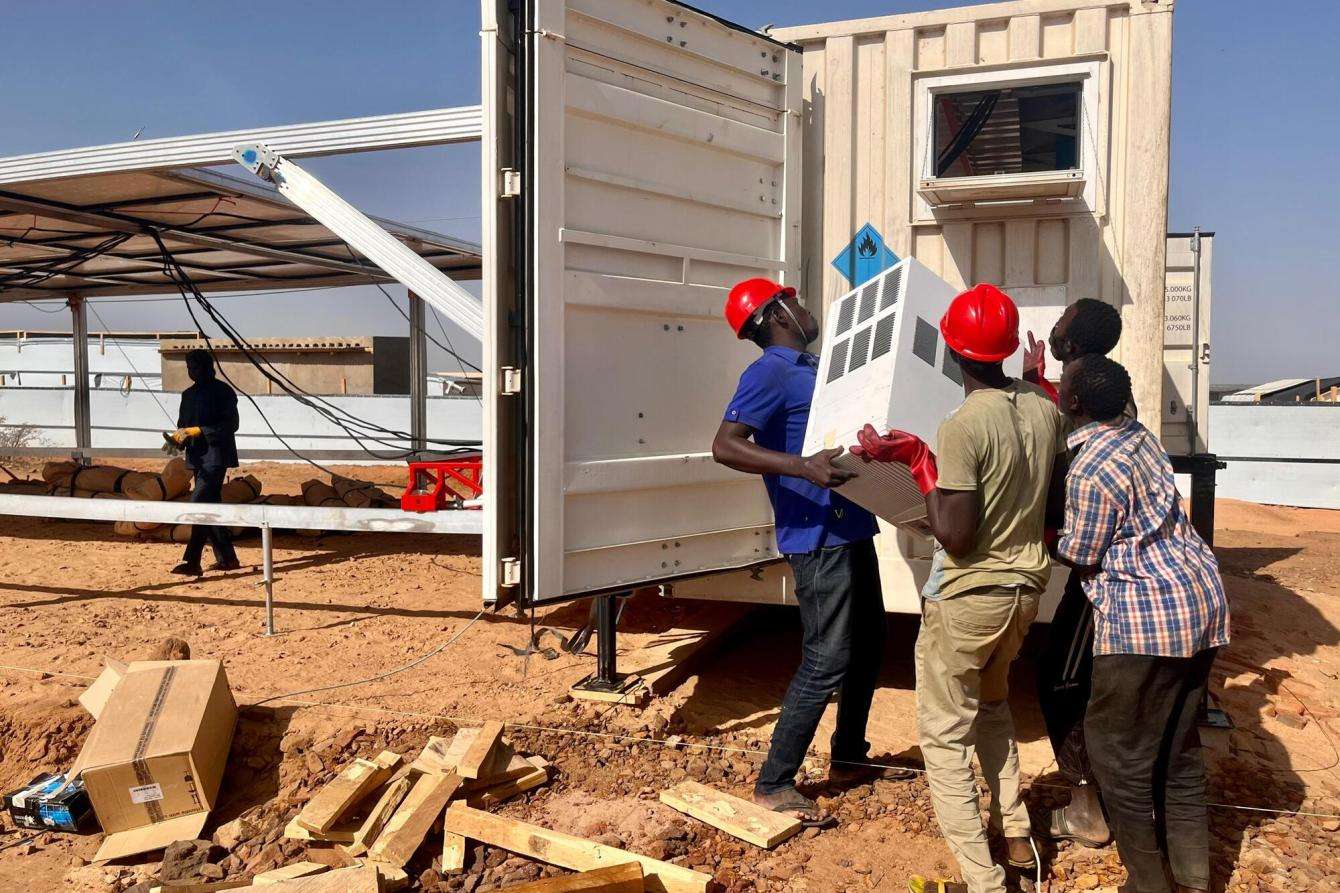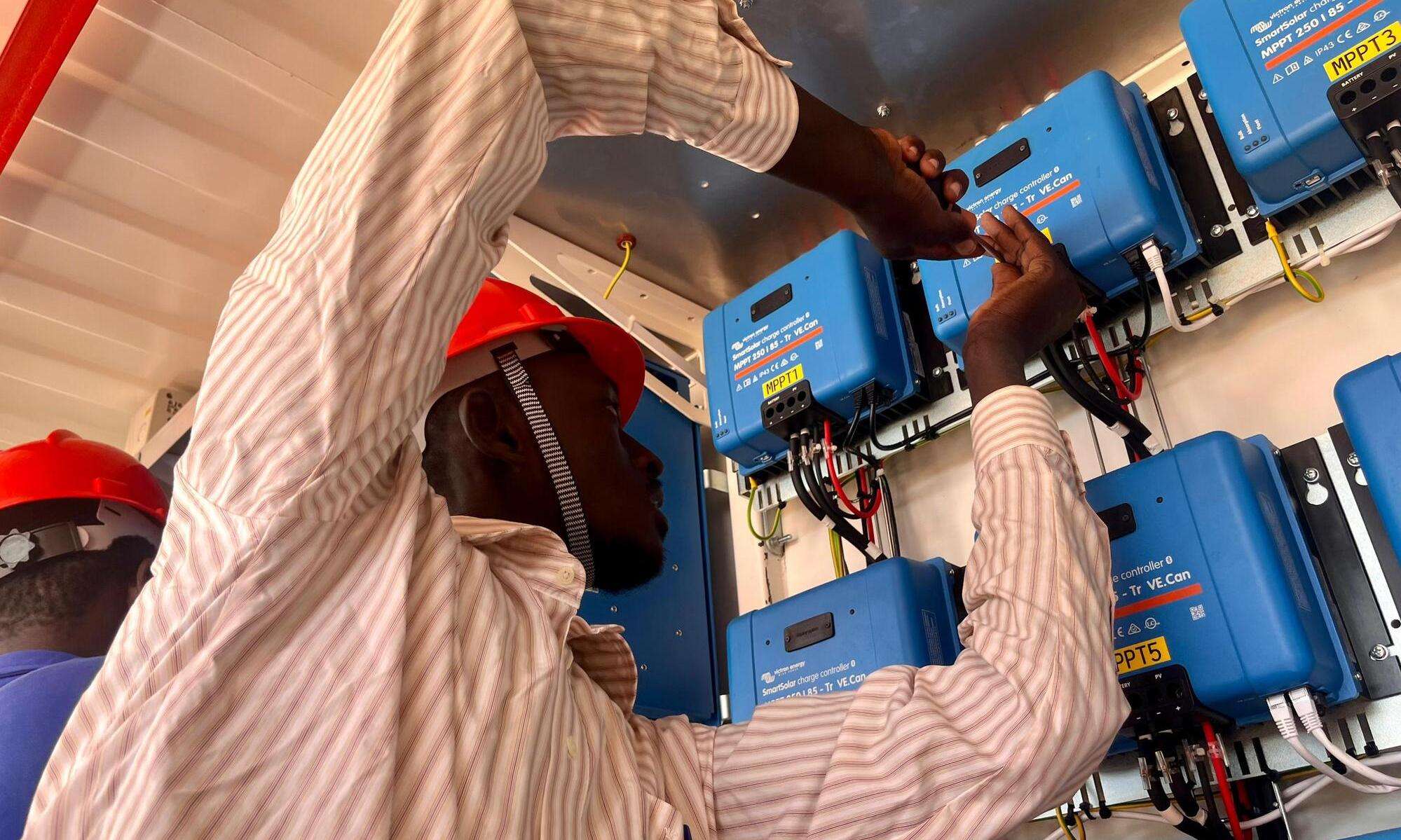Emergency medical response often relies on electricity, yet this crucial resource can be difficult to access in insecure settings. Doctors Without Borders/Médecins Sans Frontières (MSF) have been trying to find sustainable solutions to this obstacle.
In places where there is no electricity, humanitarian organizations like MSF typically rely on diesel-run generators, but it can be challenging and dangerous to transport the fuel required to insecure and remote areas. And because fossil fuels cause carbon emissions—which contributes to the climate emergency, which in turn leads to significant health problems—it’s not a good solution from an environmental standpoint, either.
Finding a solution
In their quest to find a way to rapidly deploy energy in emergency settings, MSF logisticians have been trialing an innovative potential solution in the form of a container with extendable solar panels. These solar panels have a surface area of 150m² and can produce up to 60 kWh—enough electricity, in theory, to run an entire health center or vaccination facility. Tents can be set up underneath the solar panels, so that the structure functions as a portable health center.
You don’t need to be an electrician to install this all-in-one setup, which eliminates another potential obstacle as it can be difficult to reach professionals in in remote locations.
The container is currently being tested in Ourang, eastern Chad, where MSF teams are providing health care to 50,000 refugees who fled violence in neighboring Sudan over the past 10 months. Alongside a traditional generator, the container provides the energy needed to run various medical activities in Ourang. So far, it has considerably reduced the fuel consumption of the traditional generator.

Looking to the future
The goal is for the container to be entirely autonomous so that there is no need for generators. One challenge to overcome is that the container is heavy and you need a truck with a crane to transport it. It needs to be capable of being deployed and redeployed rapidly to be of use during emergencies.
“We need to continue testing it to see if it really suits our needs,” said MSF logistics advisor Ivan Quentin. “There is no magic wand. We are working on [finding] a real solution and it will take time.”




